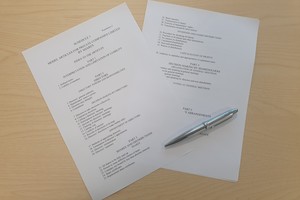This year, with a combination of ongoing COVID-19 restrictions, anxieties surrounding returning to work and the usual winter flu symptoms, may mean that employers are running on a reduced workforce more than ever before.
This puts additional pressure on the staff remaining at work which makes them more likely to call in sick, putting even more pressure on those that are left and the business.
With more genuine reasons for employees to take time off work, such as COVID-19 related sickness and the various reasons the Government have outlined situations in which people should self-isolate, come more excuses for some dishonest employees to feign illness. What should employers do if they suspect that an employee is concocting reasons for their absence, or exaggerating their illness as a reason not to attend work?
Real or Fake?
The first question an employer should ask is, whether or not the employee is genuinely ill. Determining whether an employee is genuinely ill or not is the ‘tricky’ part with a few things to consider. As an employer, you will usually already have a good feel for who in your workforce is trying to get a couple of extra days off and those who are genuinely sick. Having said that, it is important to not jump to conclusions. You may suspect that an employee is not being totally honest about their absence; if the absence coincides with a birthday, important deadline, you notice a pattern emerging or the employee’s posts on social media don’t marry with what they are saying, you may be dealing with a malingerer, but proceed with caution. You would need clear and concise evidence and information to prove your findings before proceeding with any disciplinary action. If you are unsure or would like to talk individual cases through, please contact us. These cases are rarely black or white and discussing it will help decide which side of the line the employee falls on.
Process
Determining whether you are dealing with a real absence or not, will determine which process to follow. Frequent short-term absences should be dealt with through your absence management process if genuine - unless certain triggers have been hit from your absence policy. Dishonest absences however, are about an employee’s conduct and should therefore be dealt with as a disciplinary issue. If you would like support in reviewing your absence or disciplinary policies, please let us know and we will be happy to look over them with you.
Actions
If you suspect an employee is malingering, there are a number of actions you can take to confirm your suspicions and discourage repeat offences, as well as a few legal points to bear in mind;
- Make a commitment to conduct return-to-work interviews after every absence. It may feel like more time spent on paperwork and admin, but to a dishonest employee or one who is thinking about it, the thought of an interview alone can be enough to put them off.
- Don’t rely entirely on what you see/find on social media. It is very tempting to check their social media pages of recent activity to gather evidence of wrongdoing, but be careful of data protection and privacy issues and only look for relevant information - their holiday pictures from 5 years ago are not going to provide you with the result you want. Please speak to us first if you are unsure of any evidence you are gathering.
- It may be necessary to ask their GP for medical evidence as proof of illness. Particularly if the information you are being provided with is vague, illogical or completely out of the blue. You will need you employee’s written consent for such a request and there can be a cost to pay from the GP. If you are dealing with an employee who is displaying a repeated pattern of absence, the GP’s report can be useful in identifying any underlying medical conditions. If you have an employee who is being dishonest however; just asking for their written permission to obtain a GP report is enough for them to realise they are unable to provide genuine documentation and therefore the realisation they are not going to be successful in their false absence claims. Again, if you are wanting to talk this option through with us, please let us know.
With the current home working circumstances for the majority of workforces in the recent lockdown, it may make it more difficult to prove false absences.
If you are ever in any doubt, hesitant or would like to talk individual cases through with us. Please contact us using the details next to our profiles on this page. We are open and operating as normal and are here to help.



















